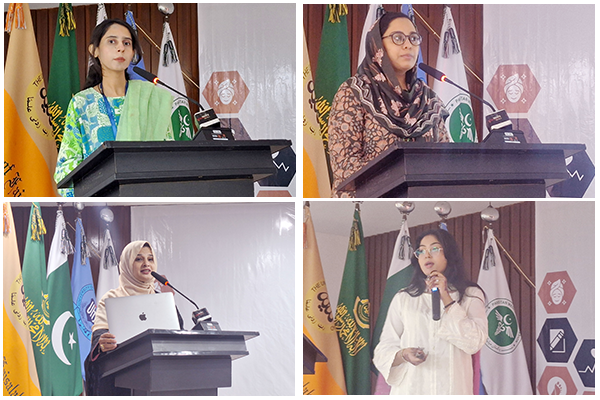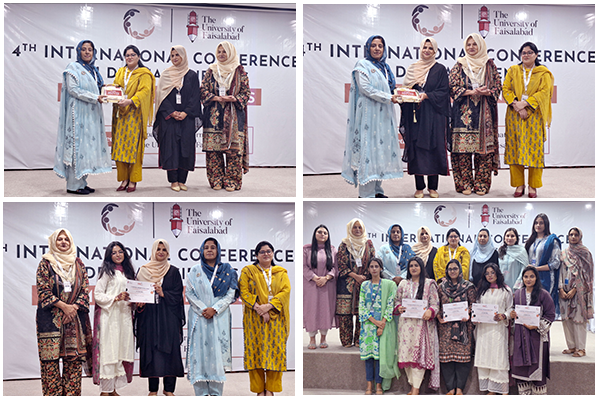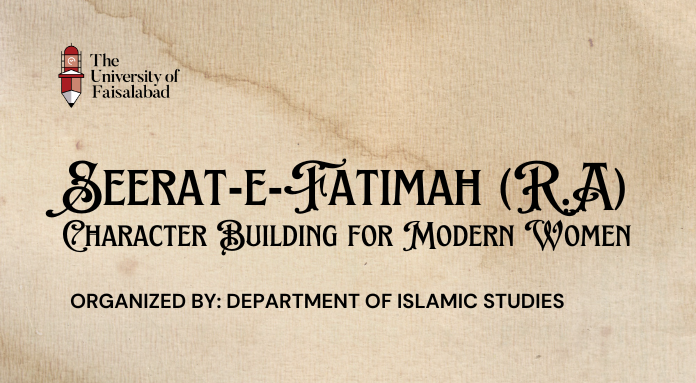

Publications
Quality Education
4th International Conference on Dermal Sciences (ICDS 2024) Sheds Light on the theme "Skin Connects”, Followed by a Notable Book Launch International Handbook of Colorism
Emphasizing the commitment to advancing dermatological knowledge, the 4th International Conference on Dermal Sciences was convened under the esteemed leadership of Prof Dr Tanzeela Khalid, Dean of Clinical Trainings and Head of the Department of Dermal Sciences, on 29th and 30th October. This year, in line with the theme "Skin Connects," the conference convened esteemed National & International researchers to engage in discussions on critical issues in the field. During the inaugural session, Chief Guest Prof Dr Syed Asghar Naqi, Principal of Allama Iqbal Medical College, addressed the increasing issues related to skin color and colorism, he appreciated The University of Faisalabad for organizing the 4th ICDS and congratulated Dr Tanzeela and her team for their efforts. The session also featured contributions from Prof Dr Amanullah Malik, Pro-Rector, TUF; Ms Zahida Maqbool, Registrar, TUF; Prof Dr Amir Ali Chaudhary, Dean of the Faculty of Sciences; and Prof Dr Akram Malik, Principal, UMDC.
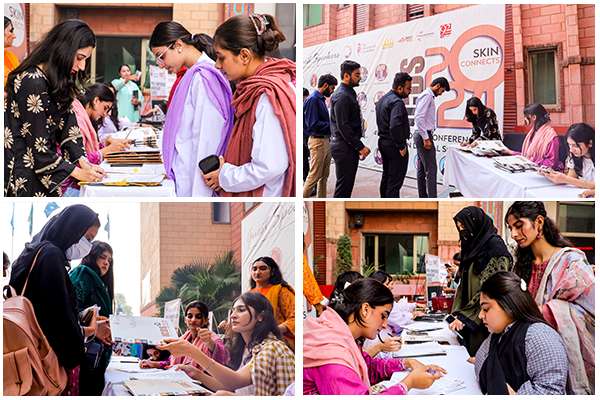
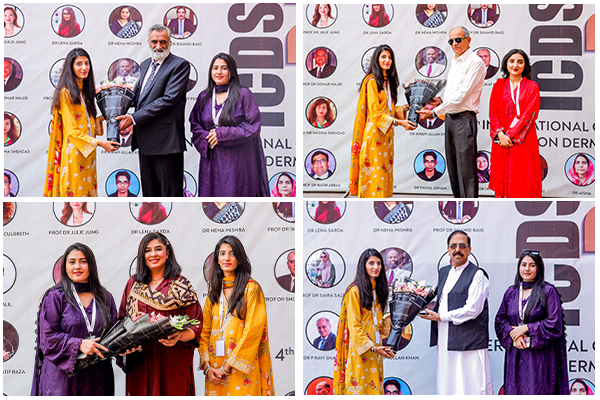
The first session, titled under the theme Colorism Through the Lens of Research and Academia, was conducted through online interaction with international speakers, Dr Neha Mishra, Assistant Professor of Law at O.P. Jindal Global University, India, opened the session with her talk on "Understanding Colorism: A Non-Western Lens,". This was followed by Prof Dr Julie Jung, Professor of English at Harper College and Adjunct Professor of Humanities at Colorado Christian University, USA, exploration of how colorism affects women of various ethnic backgrounds, particularly Asian, Black, and Latina women. Dr Donnamaria Culbreth, Founder and Executive Director of the Institute for the Study of Colorism (ISC), New Jersey, USA, delved into the psychological traumas linked with colorism. Other speakers, included Dr Lena Sarda, Member of the Institute for the Study of Colorism and Anti-Oppressive Education Committee, McMaster University, Canada, and Dr P Ravi Shankar, Faculty member at International Medical University, Kuala Lumpur, Malaysia, highlighted the often-overlooked psychological toll of colorism and the prevalence of skin-lightening practices.
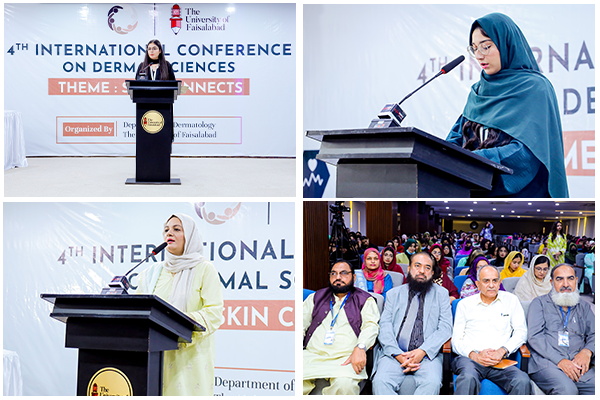
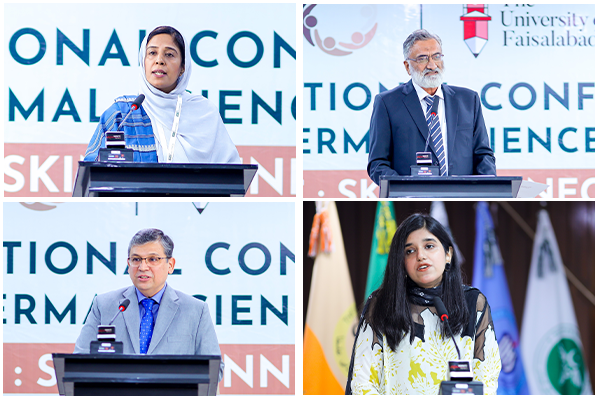
Ms Sana Arshad, co-author of the book International Handbook of Colorism, being launched at ICDS-24, presented insights on “Shades of Prejudice: Unpacking Colorism in Pakistan”. The session concluded with the launch of the book International Handbook of Colorism, published by Routledge, notably, one of the chapters in this book is co-authored by Dr Tanzila Khalid, and Ms Sana Arshad, Cosmetologist at Signature Aesthetics, Alumnus, Doctor of Dermal Sciences, TUF. The handbook, features contributions from authors across all seven continents and broadens understanding and promote discussions on colorism across cultural and national contexts.
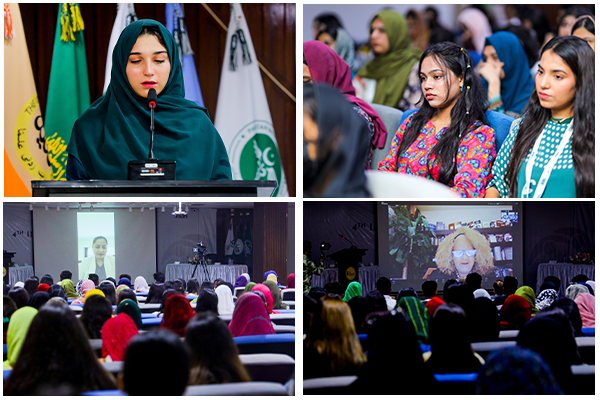
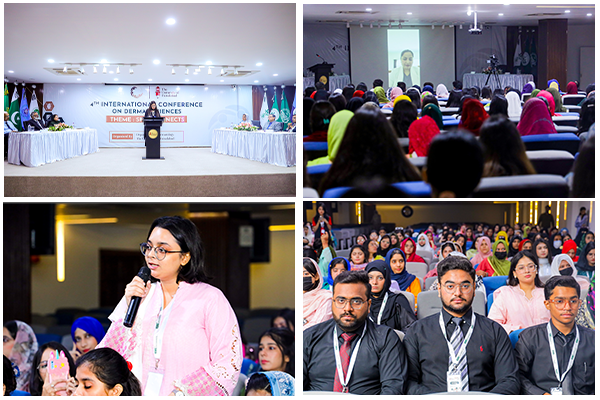
The second scientific session under the theme, titled United for Skin Health: Advancing SDG 3 with Allied Health Education, featured Prof Dr Gohar Wajid, Technical officer for Health Workforce Development, WHO, Cairo, Egypt, emphasizing upon the“Importance of Allied Health Professionals in the Healthcare Scenario- a Focus on Resource limited countries”. Prof Dr Musarrat-ul-Hasnain, spoke on “Advancing SDG3 Through Reframing Health Systems in Developing Countries”. Dr Noor-i-Kiran Haris, presented valuable insights on“Integrating AI in IPE and Research”, Dr Komal Atta explored the significance of ‘Skin-Deep Connections: Uniting Allied Health Professions Through Communication”, Ms Attiya Anwar, make valuable discussions on “Exploring the perceptions of Pakistani healthcare professionals towards using artificial intelligence”.
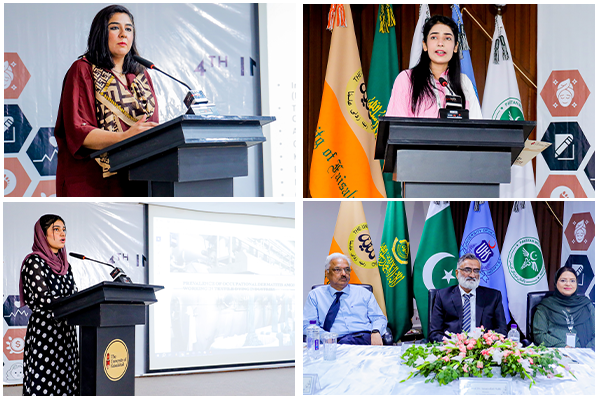
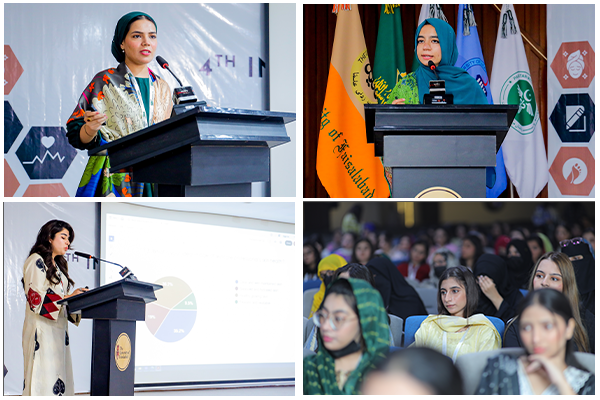
The first day of ICDS-24 concluded with insightful presentations from emerging researchers. Ms. Kinza Arif presented "Reviving Neglected Wounds," a case report on healthcare gaps in managing untreated dog bite injuries in Pakistan. Areeba Akhtar explored patient preferences in relation to the physical appearance of skincare professionals, while Momna Izhar examined the psychosocial and financial impacts of melasma in Punjab. Zahra Batool’s study emphasized the importance of psychiatric support in improving the quality of life for chronic skin disease patients.
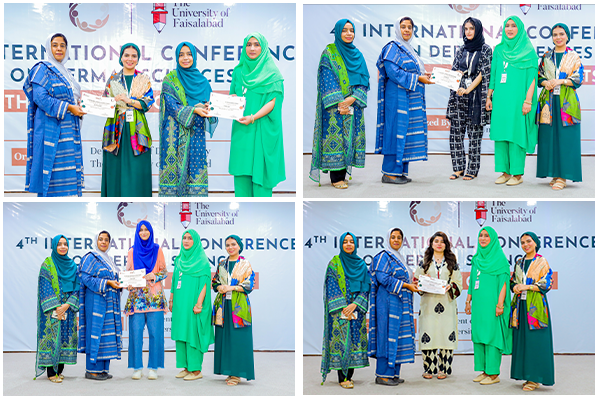
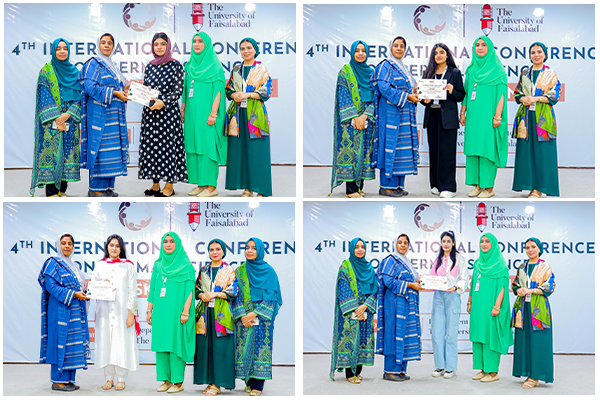
The second day of ICDS 2024 was marked by insightful sessions exploring the intricate connections between skin health, systemic conditions, cultural contexts, and pharmaceutical innovations. The day began with the title of the talk The Skin as a Mirror of Health, where Prof Dr Saira Saleem, Professor of Surgery, Head Department of Surgery, Madinah Teaching Hospital, and UMDC, illuminated the complexities of “Cutaneous Manifestations of Breast Cancer, and their differentiation from benign dermatological conditions”. Adding to the discussion on systemic links, Prof Dr Shoukat Pervaiz, Former Rector, TUF, Former Managing Director at Pakistan Atomic Energy Commission, Former Chairman of PCSIR, presented “Innovative approaches for maintaining and enhancing skin health and Immune mechanisms through microbiome and probiotics”. Prof Dr Aisha Sajid shed light on “Pediatric Skin signs in Systemic Conditions”, emphasizing early diagnosis in pediatric care. Dr Umber Rizwan offered perspectives on “Skin and Women's Health: Perspectives from Gynae and Obs”. Dr Kun Li’s talk on the role of “Nanoparticles as a key player in infectious dermatology” hinted at future directions in dermatological research, underscoring the evolving role of technology in treatment.
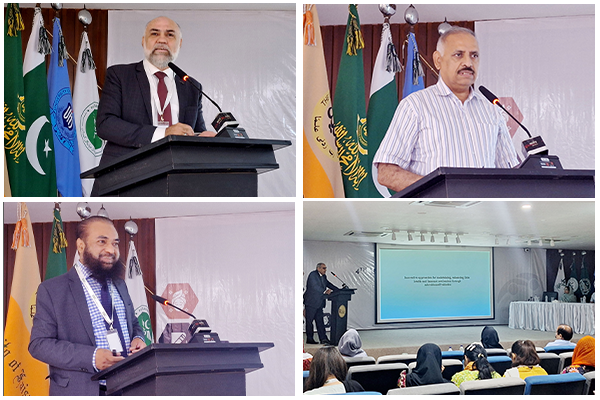
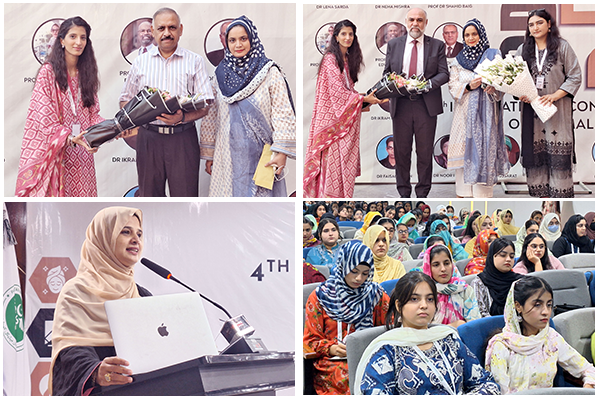
A distinctive and prestigious session in ICDS-24 transitioned to the theme of Skin and Linguistics: Exploring Skin through the Lens of Language and Cultural Contexts, chaired by Dr Asma Aftab, Associate Professor, Department of English, GCUF, co-chaired by Dr Sabahat Parveen, Assistant Professor, Department of English, University of Education, Faisalabad, and Prof Dr Nailah Riaz, Head Department of English Language and Literature, TUF. Leading the way to explore skin through cultural and linguistic lenses, Dr Asma provided her valuable insights on “Thinking Skin Deep: Some Pedagogical Reflections”. Ms Maliha Khalid, Content Writer, TUF, and a proud Alumnus of the Department of English, TUF, presented her research article on “Skin Color and Marriage Norms in Contemporary Pakistan: A Postcolonial Study of Beauty Standards” analyzing postcolonial beauty standards and cultural norms in Pakistani society.
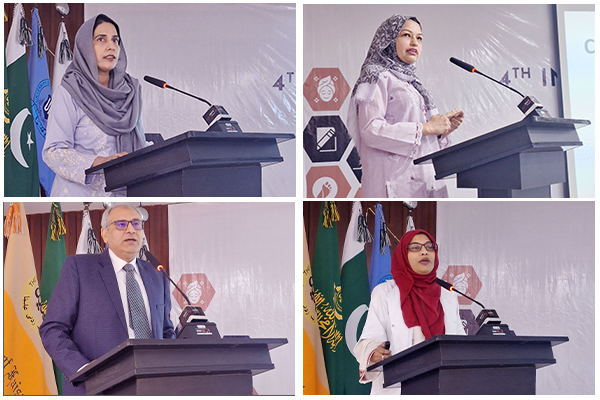
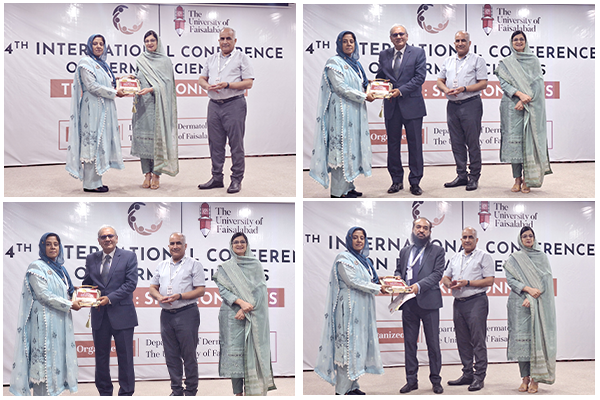
Ms Rimal Fatima engaged the audience with an analysis of color in Shakespeare as a lens for trauma and racial identity. Other literary presentations by Ms Sehrish, Ms Mariya Iftikhar, and Ms Rukhsar Alam covered themes of colorism, racial trauma, and cultural representations of skin in works like We Were Liars, Uncle Tom’s Cabin, and The Namesake. The concluding remarks for this session were given by Dr Sabahat and Dr Nailah Riaz.
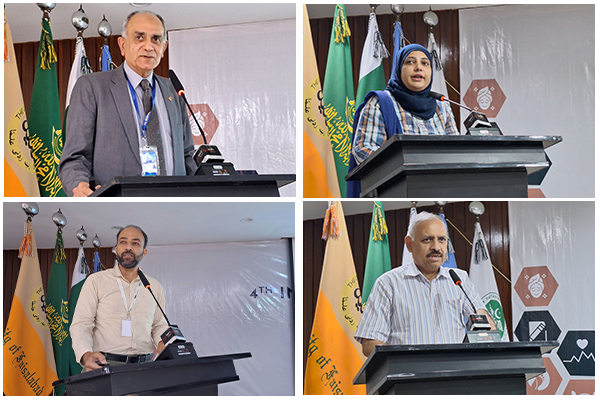
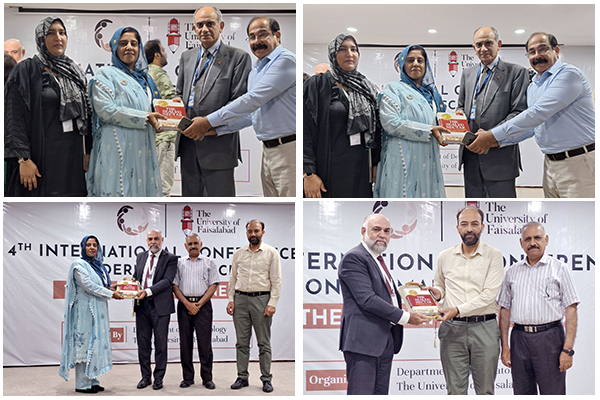
The last and the concluding session in ICDS-24, was a focus on "Skin and Pharmaceutics". Dr Nadeem Irfan Bukhari, Dean of Pharmaceutical Sciences at Qarshi University, led an engaging session on advancements in 3D printing for dermal formulations. Prof Nasir Abbas from Punjab University highlighted the cosmetic potential of electrospun nanofibers, while Prof Atif Raza enriched the discussion with insights into pharmaceutics and dermatology. Dr Faisal Usman from BZU presented antibiotic-loaded hydrogels for wound care, and Dr Amir Jalil introduced phosphatase-responsive nanocarriers for targeted skin treatments. Dr Sadia Rafique from TUF discussed micellar solutions for natural extracts, and Prof Sajid Bashir covered pH-responsive natural hydrogels. Additionally, Prof Muhammad Ishfaq, Dean, Faculty of Management Studies, provided insights through a distinguished talk on " Skinconomics:Exploring the Dynamics of the Trillion-Dollar Skincare Industry". Just like the past three years, this year’s conference on dermal sciences proved to be an excellent initiative, fostering valuable future collaborations for the department of Dermal Sciences.
